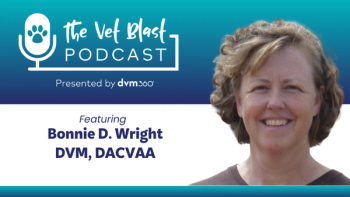
- January 2018
- Volume 2
- Issue 1
Advice Unleashed (January 2018)
Tips and insight from business, financial and practice management experts.
“If a disaster happens in your community, what are you going to do to protect the practice and the animals in your care?” asks Anne McCann, national emergency programs coordinator for the U.S. Department of Agriculture Animal Care.
McCann encourages all veterinary practices to establish detailed plans for both evacuation and sheltering in place. “If you need to shelter in place, plan to have extra supplies on hand,” she says. “If evacuation is necessary, it’s critical to have plans for how you would move the animals that are in your care to another location. Identify that location in advance, work out the transport to get them there, and partner with other veterinary clinics.”
McCann recommends that veterinarians refer to
Alan Robinson, BVSc, MRCVS, DMS, director of Vet Dynamics Ltd in Wiltshire, United Kingdom, says most veterinary practices need to refocus their financial models. “A lot of practices don’t do well because of their inability to produce good financial results,” he says. One of the top struggles? Pricing services properly. “It’s not enough to look at what your competition is charging and create a similar price structure,” he says. “That makes the assumption that other veterinarians know what they’re doing, which they typically don’t.”
Many veterinarians discount the work they’re doing by as much as 41 percent, Dr. Robinson says — “and they’re actually discounting it from a level that was unprofitable in the first place.” Most veterinarians, he says, don’t place much value on the services they deliver, even though the client and patient receive massive value. Those who can change their mindset about money and the worth of their services — and charge appropriately for them — do very, very well, he adds.
Don’t Forget the Pet Owner!
Veterinary professionals must remember that pet owners are a big part of the equation when it comes to mastering patient care, says Erica Mattox, CVT, VTS (ECC), patient care director and surgery manager at WestVet 24/7 Animal Emergency and Specialty Center in Garden City, Idaho.
“Our goal is to make sure these pets get home to their owners and live a high quality of life,” she says. “We sometimes forget that owners are part of the team that makes sure the pet does well after treatment. They need to know how to take care of their pet when they go home from the hospital, distinguish whether the pet is getting better or declining, recognize subtle triggers in their pet, understand the importance of medication, and be able to recognize normal and abnormal behavior.”
Hiring a Contractor? Start Here
Jeff Adney, BA, president of PermaTek Coatings in Lebanon, Ohio, offers this tip for hiring a contractor for your practice: “First and foremost, ask for references.” He also recommends taking the time to visit the contractor’s facility and observe its practices and operation. “If they’ve never worked with an animal facility before, I would caution a little bit against [hiring them] because they might not quite understand the things that veterinarians struggle with a lot,” he says.
“When visiting the facility, ask what issues the company has run into and how those those issues were addressed,” Adney says. “We’re contractors; we’re human; we’re going to make mistakes. What’s important is what you do after that mistake has been made, and a good contractor is not going to run from it.”
Articles in this issue
almost 8 years ago
Managing Work-Life Boundariesalmost 8 years ago
First Impressions Lastalmost 8 years ago
Shut the Revolving Door - Part 2: Salary and Benefitsalmost 8 years ago
Better Your Brand, Better Your Business With LinkedInalmost 8 years ago
What's App With Your Finances?almost 8 years ago
Employment Opportunities Outpace National Averagealmost 8 years ago
The Secrets to Selecting a Financial AdviserNewsletter
From exam room tips to practice management insights, get trusted veterinary news delivered straight to your inbox—subscribe to dvm360.






